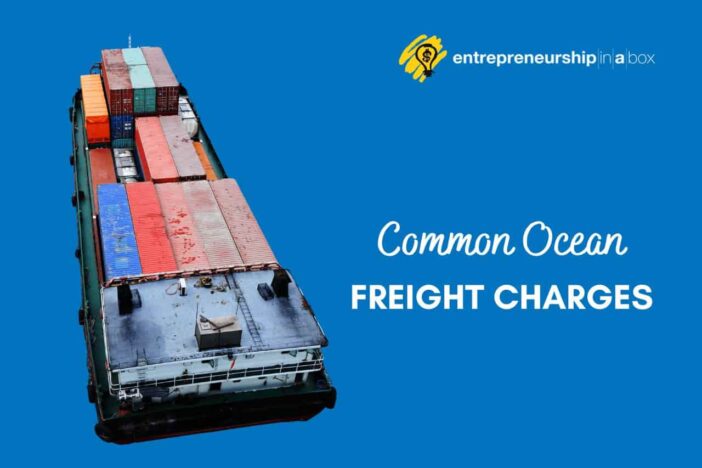Whether you have been shipping products internationally for a while or whether you have recently been saddled with the task of handling shipping for your company, you may have noticed that the breakdown of the costs can be rather complex. You need to know ocean freight charges.
Boats have been around since about 3000 BC, and much of the maritime jargon has been around for centuries. If you are not familiar with that jargon, it can be rather confusing. There are a few common ocean freight charges you will see on any bill.
Ocean Freight
This is the most basic charge on your bill. It is the amount of money that the freight company charges you to carry your goods from one port to another.
Terminal Handling Charge
The terminal charges this fee for accessing their space and using the equipment that they provide. They charge for the longshoremen who will help load and unload your products and for the maintenance of the equipment. The charge is determined by the volume of the shipment.
Invasive Species Charge
If you are shipping a product overseas, you may have to pay this fee so they can fumigate the boat for invasive species. An invasive species is an organism that creates ecological harm in a place where it is not indigenous. You must pay this whenever you send a product to another country or Guam.
✋ Warning
No more worrying about your cargo during transit 🚚 Our article reveals the best techniques for securing shipping containers. #ContainerSafety #CargoSecuring
Custom Clearance Fee
This fee is fairly self-explanatory. It is charged when a customs broker has arranged a customs clearance.
Drayage
This is a shipping term that refers to transporting cargo short distances in a truck. It takes its name from the horse-drawn carriages that used to transport goods to the docks before trucks were ever around.
Demurrage
Your carrier is required to let you keep your full container for free for an agreed-upon period of time. If you keep it longer than that, you may be charged a demurrage fee.
Fuel Surcharge
Anyone who drives a car knows that the price of gas changes all the time. The fuel surcharge section of your bill lets a shipping company adjust the cost they are charging you for fuel to coincide with the actual price of fuel. The average fuel price is set by the government on a weekly basis.
Wharfage Fee
This charge is for the use of the wharf to load and unload ships. It is charged by the freight terminal.
📖 More similar articles
Clean Truck Fee
Although it may sound like a charge for getting a cargo truck washed, this charge is actually much more complex. In 2017 the ports of Los Angeles and Long Beach joined forces to reduce pollution from all sources with the Clean Air Action Plan. It prohibits the use of trucks that contain engines manufactured before 2006.
As a result of the plan, many trucking companies had to buy new vehicles. They passed the cost on to the companies who use the port by charging this fee.
The maritime vernacular is ever-evolving. As new regulations emerge, new charges will appear as a result. Fortunately, a Google search can clear up the confusion. If you hire a good ocean freight carrier, they can explain any charge that you do not understand.
If you are looking for a shipping company with a clear and concise billing process, visit Dedola Global Logistics.



